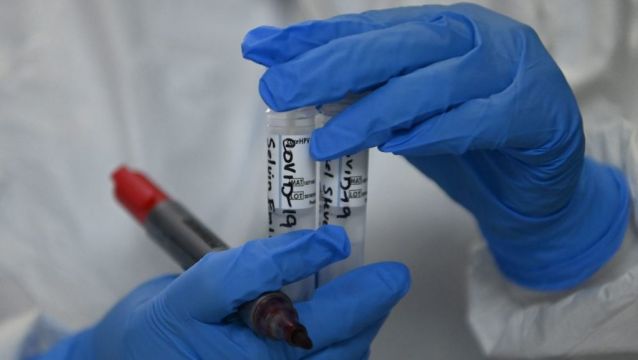More than 6,000 children and teenagers tested positive for Covid-19 in the first week of November, Health Protection Surveillance Centre (HPSC) figures have shown.
There were 978 confirmed cases in children aged four and younger, with 3,394 cases in the five-12 age group and 1,658 in the 13-18 age group.
Cases in five- to 12-year-olds represented 14 per cent of all cases between October 31st and November 6th, The Irish Times reports.
A 14-year-old is the youngest person in the Republic to die as a result of Covid.
The teenager’s death with coronavirus was recorded last week between November 3rd and November 9th. The person was one of 25 people who died from Covid-19 in that week.
Previously, the youngest person to die in the State from Covid-19 was 17.
The chief executive of Children’s Health Ireland (CHI) Eílish Hardiman has warned that a “double whammy” is facing the healthcare system with double the number of babies expected to contract respiratory illnesses this winter.
Speaking on RTÉ radio’s Today with Claire Byrne show, Ms Hardiman said that last year there were no RSV (respiratory syncytial virus) cases among children because of lockdown, but it was anticipated that the cases would double this year because babies had not built up an immunity.
There will be a double whammy, a second wave.
The system was already under severe pressure, especially the emergency departments at children’s hospitals. Although there had never been more than single figures cases of Covid among children hospitalised, restrictions and therefore delays occurred because their parents could catch Covid, she explained.
CHI was not happy about waiting lists for children, access to care was their priority, she said. “But we cannot magic up facilities.”
CHI had plans ready to go once investment was received, but it would still be two and a half years before the new children’s hospital was completed. Ms Hardiman pointed out that the Temple Street hospital building was 182 years old which hampered plans.
Emergency departments at children’s hospitals were very busy, she said, which meant that elective procedures were being cancelled. The number of attendances at their emergency departments over the month of October in 2019 was 11,700, in October this year that figure rose to 19,845 attendances, she said. “That is a massive increase.”
The current high level of respiratory conditions meant that more elective procedures were being impacted, added Ms Hardiman. “We have a capacity issue. All our beds are full at the moment because of the need for respiratory care.”
Waiting lists had deteriorated, she acknowledged. “We will never have a zero waiting list.”
Investment

Investment was needed, when it had been provided in the past, services had improved. “We’ve done it before, and we will do it again.”
Extra staff and extra beds were needed, she said.
“The system is under pressure, we need new resources and new plans. We’ve outlined what we can do.”
CHI had to plan ahead to identify bottlenecks, but in the meantime they had to deal with the constraints which “we’re trying to address”, she said. - Additional reporting from Vivienne Clarke







